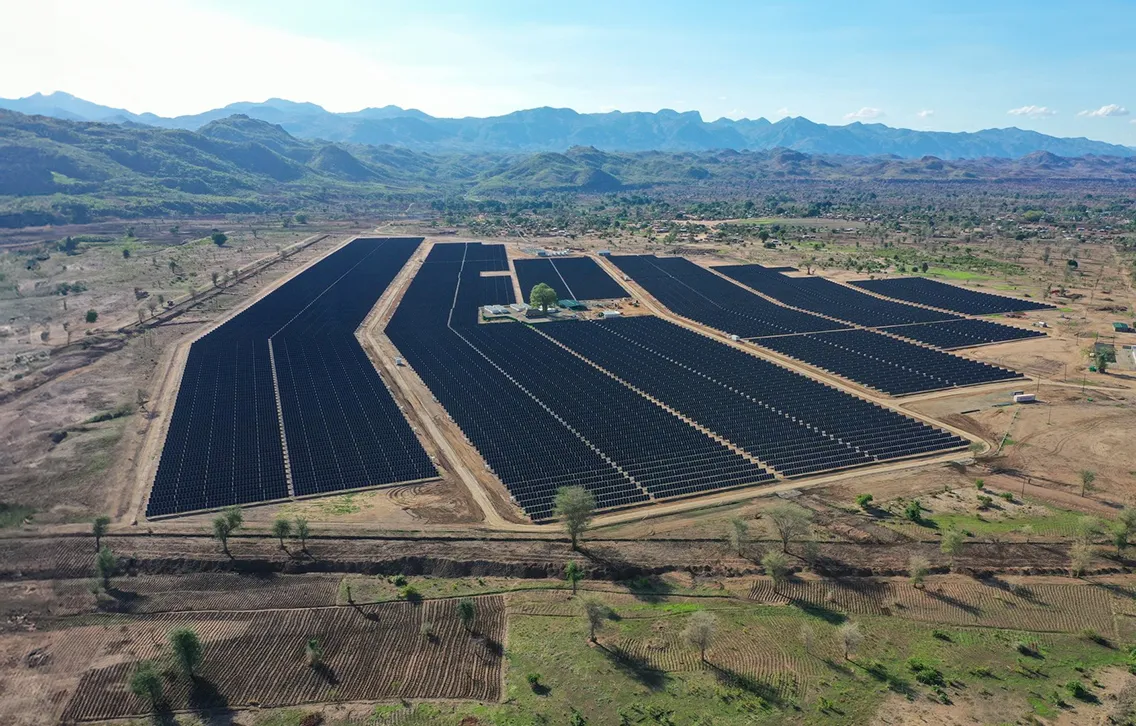Africa, with its abundant sunlight, holds immense potential for solar energy generation. Despite possessing 60% of the world’s best solar resources, its current share of solar capacity remains at a mere 1%. However, a promising transformation is underway, with nations such as South Africa, Egypt and Morocco leading the charge in solar adoption.
Oil-dependent countries such as Nigeria and Angola are also now embarking on efforts to integrate renewables including solar into their energy mixes and are poised to join the ranks of Africa’s top solar economies.
Multiple requirements
Numerous factors must come together to make solar and wind energy work: scale, which determines price and competitiveness; a functioning and integrated grid; and often battery energy storage systems (BESS) to save excess energy generated during peak solar or wind periods and release it during times of high demand or low generation, thus increasing the availability of renewable energy.
The newly-launched BESS Consortium, a multi-stakeholder global partnership established by the Global Energy Alliance for People and Planet (GEAPP), is driving fresh ambition for accelerating and scaling up solar expansion. This initiative aims to transform energy systems across low- and middle-income countries (LMICs) by leveraging the benefits of battery energy storage systems.
Making solar viable
Attendees at a roundtable on these issues were: Ibrahim Matola, minister of energy in Malawi; Joseph Ng’ang’a, interim CEO of GEAPP; and Demba Diallo, managing director, head of project development at Africa50. Omar Ben Yedder facilitated.
Opening the discussions, Joseph Ng’ang’a dealt with the question of how renewables in Africa can match the oil and gas sector, which manages to attract 8% of global investments.
Renewables are more likely than oil and gas to be utilised on the continent for both domestic and industrial purposes.
But “our markets are relatively small and that means you are dealing with tens of megawatts (MW) as opposed to hundreds of MW, which impacts the economics of the solar plants,” he noted.
The paradox, Ng’ang’a pointed out, is that while investment remains low, Africa requires much more power than it currently has, with about 600m of its people without access to power.
Partnership approach
Success, Ng’ang’a added, would require “multifaceted solutions that are delivered by different institutions”. This is why GEAPP has established a consortium comprising over 14 countries and 20 partners, each fulfilling a specific role.
The consortium focuses on battery energy storage, with technical experts assisting African utilities in understanding its benefits for their infrastructure, and financiers – both public and private – supporting deployment at scale.
“The goal of GEAPP is to bring together all our alliance partners, each of them playing to their strengths,” he stressed.
Malawi is one of the eleven countries that have signed up to the BESS Consortium, along with African nations Egypt, Ghana, Kenya, Mauritania, Mozambique, Nigeria and Togo. According to Ibrahim Matola, minister of energy of Malawi, the country sees the expansion of battery storage systems as a solution to the energy challenges that it has. “BESS will provide auxiliary services to the national grid, which assists in the integration of renewable energy, allowing the country to maximise the use of low-cost solar power resources in its energy mix,” he said, adding that in addition to its financial commitments, “the government [of Malawi] is looking into the current policy and regulatory framework… for the deployment and operation of the BESS, including licensing, standards and safety regulations, grid code and tariff structure”.
Malawi has three operational solar power plants: the Salima plant, developed by JCM Power with a capacity of 80 MW; Serengeti with a capacity of 20 MW; and Golomoti, also developed by JCM Power, which has a capacity of 21 MW and includes a 5 MW battery storage system. Several other projects are in the pipeline.
Addressing risk
Addressing the issue of risk, Demba Diallo of Africa50 conceded that African markets are small and fragmented and as a result they are deemed to be risky. However, he noted, “if we are able to interconnect the transmission networks, then we’ll be able to have large-scale solar projects in some countries that you can export to others.”
Another crucial aspect, Demba said, is project structuring, specifically de-risking. This can lower the interest rates demanded by equity partners and lenders. “This is what institutions such as Africa50 are trying to do through our interventions and instruments,” Demba stressed.
Demba further explained that Africa50, as an institution that is owned by its member states, is engaged with African governments on regulatory and policy reforms that will encourage investment in battery storage projects. “We are making sure that we have the right policies in place and also ensuring that there are some incentives such as tax reduction, because when you have a positive risk, you have to lower the investment,” he said.
Independent Power Producer plans
Some countries are just beginning to explore the Independent Power Producer (IPP) model, while others, such as Morocco, have advanced frameworks and competitive bidding processes. This disparity necessitates a tailored approach to match local conditions and concerns.
In Mozambique Africa50 is currently working on three solar projects, having signed a memorandum of understanding at COP28. “We are working on the African Green Infrastructure Alliance, which aims to develop $10bn of climate-friendly projects, mainly in the power sector, with $500m devoted to developing projects on the transmission side, which is really important to build those power pools, and also on the renewable generation part,” he added.
Ng’ang’a concurred with Demba, emphasising that while some African countries have well-established geothermal resources providing baseload power, others such as Malawi offer significant solar potential. Countries and investors must adopt a holistic approach to electrification, considering not just individual demand and supply but also the regional impact of investments. “At a discussion in Barcelona a month ago with 16 African ministers the message was very clear that Africa wants to set the agenda, and the ministers believe that by not just looking at individual countries but at the right combination of countries and their resources, we could do that more effectively and efficiently.”
Closing the session, Ng’ang’a outlined three key factors driving progress in African energy development. First, he emphasised the importance of African ministers taking a proactive role in energy discussions, framing energy not just as an issue of electricity but as a critical component of overall development that deserves top-level attention.
Second is the ambitious $30bn commitment by the World Bank and African Development Bank to provide electricity to 300m more Africans. He noted that the value of this lies not only in the financial commitment but also in the drive for a collaborative approach.
Thirdly, Ng’ang’a pointed to the economic benefits of renewable technologies, such as battery energy storage and solar power. The decreasing costs of these technologies promise substantial economic impact and address challenges such as utility sustainability, given the disparity between generation costs and tariffs. “For me, these three trends give me a lot of hope. We must continue pushing the agenda forward because with over 680m unelectrified Africans, we simply cannot ease up on the pressure.”
Want to continue reading? Subscribe today.
You've read all your free articles for this month! Subscribe now to enjoy full access to our content.
Digital Monthly
£8.00 / month
Receive full unlimited access to our articles, opinions, podcasts and more.
Digital Yearly
£70.00 / year
Our best value offer - save £26 and gain access to all of our digital content for an entire year!

 Sign in with Google
Sign in with Google 



